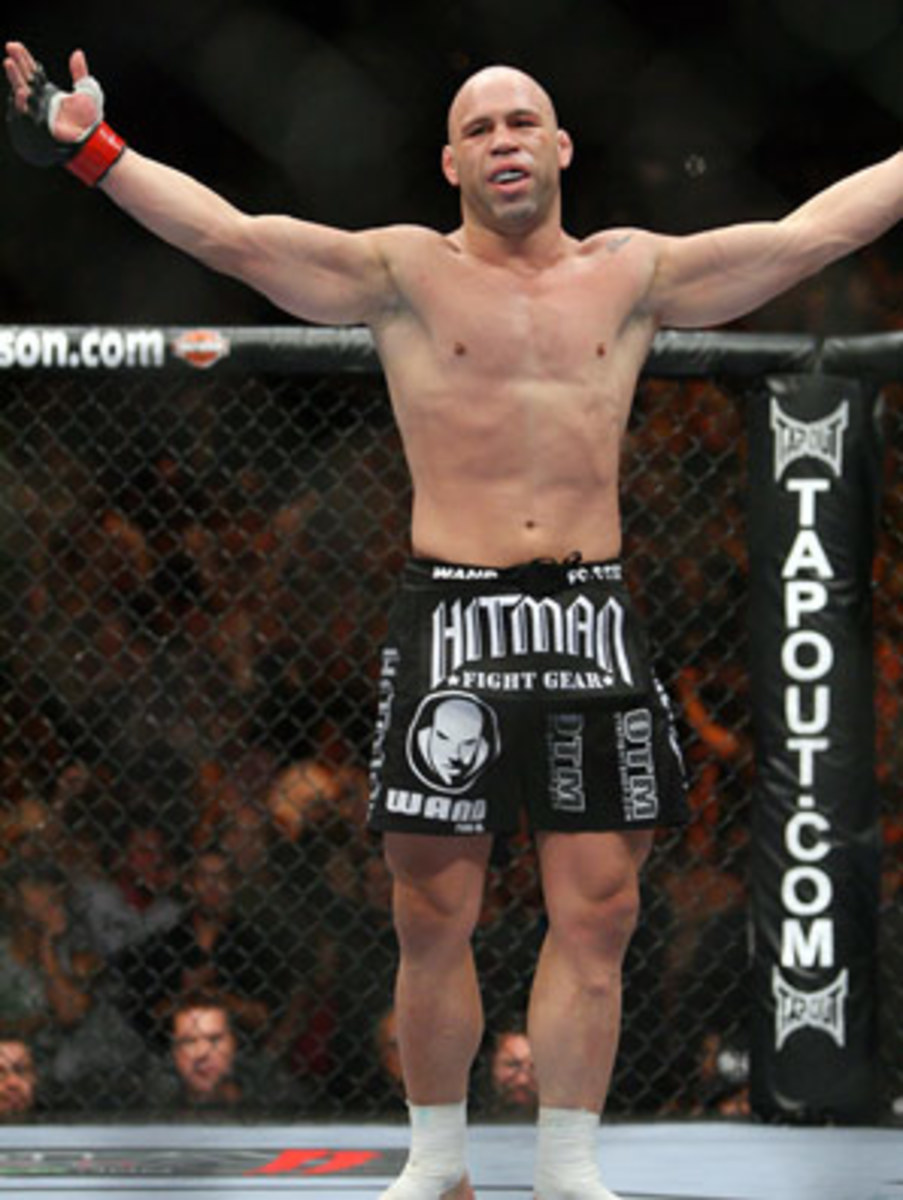With a dream and a drive, TapouT's 'Mask' became an MMA inspiration
That the 45-year-old co-founder of TapouT -- mixed martial arts' dominant lifestyle and apparel brand that sold $100 million in merchandise in 2008 -- was in position to own a $300,000 Italian sports car is a bit of an upset. Twelve years ago he set out selling t-shirts out of the trunks of cars -- not his, he couldn't afford one -- up and down the California coast, anywhere there was mixed martial arts, really.
Lewis came to represent the hardest of MMA's hardcore fans. As the sport grew, so did the passion of its longtime followers. Few symbolized MMA's raw intensity better than Lewis, whose cultish alter ego "Mask," a fatigue-colored, face-paint-wearing madman with an infectious laugh befitting a well-fed hyena, was impossible to ignore and even harder not to like.
Through his vision and dedication, TapouT came to represent a certain segment of the population. Like Mask, they're people hard to miss. Drive around much these days and you'll invariably see the logo stuck on the back of a tinted window, or stenciled into a raised truck's side panel. Beyond selling a $100 million worth of clothes in stores, such as Champs Sports, Lewis dreamt of MMA taking over the world. It was the kind of honest ambition that made MMA devotees like him almost immediately for a sort of "nothing will stop us from moving forward" idealism that helped deliver MMA from human cockfighting's shadows.
"I've always liked what they represented," Frank Shamrock said Thursday in Los Angeles, where he and other fighters -- TapouT's first demo -- sat on a stage discussing the return of MMA to Showtime television. "I've always liked Charles' dream because it's an amazing dream, an extraordinary dream."
It's a dream that included helping fighters whenever possible. Lewis was a strong advocate for the men and women who risked more than a bad day at the gate. When he began TapouT out of an apartment in San Bernardino, Calif., where the former Marine served as a sheriff deputy, there wasn't much for fighters in the way of sponsorship dollars. He did what he could. In the beginning, a set of free shirts would suffice. Then, maybe, a couple hundred bucks.
"There weren't a lot of people giving money to fighters at the time," said popular middleweight Robbie Lawler, who's worn TapouT gear in several fights. "They took it on their shoulders to help MMA grow, and I think they did a lot to help MMA."
When Lewis started TapouT in 1997, he barely had enough money to silkscreen shirts designed, primarily, by him. Profit became gas money that took them to the next event. Mask cultivated friendships with everyone in the business, handing out more than enough merchandise along the way. But that was all part of his vision -- one that was about more than simply becoming a financial success.
Cold? Here's a sweatshirt. Need something else? Take a beanie.
That's what Strikeforce lightweight champion Josh Thomson remembers most about a freezing winter night in Lemoore, Calif., just one of the many destinations Mask and his motley crew visited during their years bouncing around.
"It comes from the heart when people are offering just because you're cold," Thomson said.
Prior to Thursday's press conference for the promotion's April 11 card, a moment of silence was taken in remembrance of Lewis. Of the 11 fighters that later spoke of their opportunity to fight in premium television and make a pretty good living, seven had worn TapouT at some point in their careers -- even if that meant they had to buy it themselves.
Middleweight Scott Smith tells a story of purchasing a pair of shorts before a Brazilian jiu-jitsu tournament in 1999.
"I coughed up the only 40 bucks I had left just to wear TapouT," he said. "There was a kind of intimidation factor: 'Oh, this guy is a cage fighter.'"
The well-traveled Smith moved up the ranks and eventually scored his own TapouT deal. As did Lawler. And Thomson. And Shamrock, who recently agreed to represent a new upscale line from the clothing company.
As with anything that gets too popular, there was some backlash to TapouT's success in more insular MMA circles, which oddly regarded the brand in possession of an ironic slogan -- "Bad for the sport" -- as having sold out.
"To be honest with you I loved the [stuff] until everyone started wearing it," said Nick Diaz, a beneficiary of TapouT sponsorship dollars after first meeting Mask in Fresno when he was 15. "But it doesn't mean I don't love 'em."
There has been plenty of love to go around since Lewis passed, and rightfully so. He was as genuine as you can get.
Said Shamrock when asked what he thought was at the core of Mask's dream: "Make something out of nothing and do something big with it."
And that, Lewis did.





